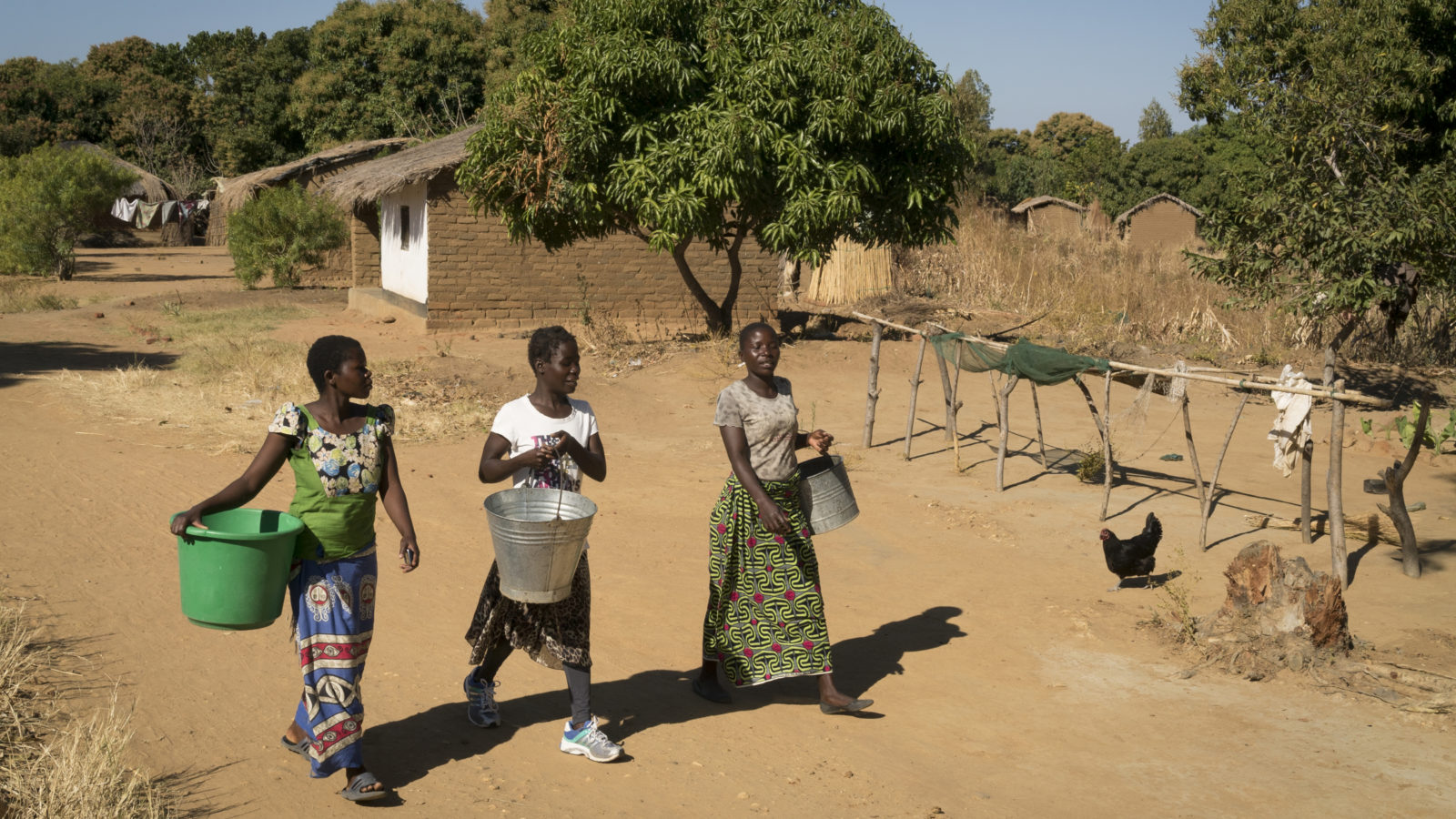Comments
- No comments found

For many Malawians, farming tobacco isn’t just a way of life — it’s also their sole source of income.
“I cannot stop growing tobacco because it’s my livelihood,” said a Malawi woman in a video about farmers in the southeastern
African country. In Malawi, tobacco accounts for more than 60% of the country’s foreign exchange earnings and 13% of the economy, as measured by the gross domestic product.
However, tobacco-dependent Malawi is suffering as tobacco sales continue to plummet around the world. According to a World Health Organization study, the number of smokers across the globe dropped from 1.32 billion in 2015 to 1.30 billion in 2021.
Research from the World Bank Group found that 50.7% of Malawian citizens live below the poverty line. “Malawi has been exceptionally hard-hit,” wrote Candida Nakhumwa, Ph.D., the vice president and Malawi country director, Foundation for a Smoke-Free World (FSFW), in an op-ed. “Our overdependence on this crop as a major source of export revenue creates serious structural problems for an undiversified economy that lacks viable alternatives.”
Tobacco has anchored Malawi’s economy for the past century, but experts agree it’s time to branch out. “Malawi urgently needs to develop and implement an agricultural model that includes diverse exports and also target import substitution,” explained Nakhumwa, citing Malawi’s long and complicated history with tobacco. “Despite tobacco’s huge economic contribution, we should not turn a blind eye to the devastating negative impact tobacco cultivation has had on the long-term performance of Malawi’s economy through deforestation, soil degradation, and loss of biodiversity.”
Now, organizations like the FSFW are utilizing their resources to help the people of Malawi identify and navigate new alternatives to tobacco farming. One major priority is to help shift agricultural production away from tobacco and begin investing in other potentially profitable crops, including legumes, sugar, coffee, dairy, and tree nuts like macadamias. Nakhumwa also stressed a need for more modern technology as well as quality fertilizers and seeds, which could significantly aid productivity levels.
FSFW and its affiliate, the Agricultural Transformation Initiative, have been spearheading projects and cultivating partnerships in Malawi since 2018. In late September 2022, 15 Malawian postgraduate scholars, who are supported by the Agricultural Transformation Initiative (ATI) Fellowship and Scholarship Fund, participated in a three-day summit at North Carolina State University’s College of Agricultural and Life Sciences. During the information exchange with NC State professors and students, the scholars shared details from their studies and gained invaluable insight from experts in the field.
“It was fascinating to hear about what the 15 Malawian scholars who came to North Carolina State are working on and see their excitement about applying the skills they are acquiring to the challenges Malawi faces,” said Scott Kleinberg, FSFW’s director of agriculture programs and partnerships. “These students are going to go back and participate as leaders in academia, government, or the private sector, bringing advanced science and methodologies to Malawi, so their agricultural sector can work better.”
The Agricultural Transformation Initiative Fellowship and Scholarship Fund provided 27 scholarships to master’s students and postdoctoral fellows from Malawi with the support of a grant from the Foundation for a Smoke-Free World. The fund, which is administered by the Institute of International Education, was created to help Malawian scholars explore ways to contribute to the diversification of their local agricultural ecosystem.
The goal is for the scholars to bring real, viable solutions and ideas home to help local and smallholder farmers in Malawi. “This scholarship fund strengthens local agricultural expertise by further developing the skills of promising students from Malawi who want to help increase the opportunities available to smallholder tobacco farmers to diversify away from tobacco production and improve their livelihoods,” explained Kleinberg.
It’s one of many efforts FSFW and others are supporting to improve conditions in Malawi, where the economy remains fragile and where tobacco continues to be the major cash crop.
While economic growth increased to 2.8% in 2021, a World Bank Group report revealed it has remained below pre-pandemic levels. “Dry spells at the beginning of the growing season decreased crop yields, and multiple tropical storms have damaged farmland and key infrastructure.”
There is no question the global decline of smoking has had many positive health impacts — but as the FSFW’s website states, “[It] could bring negative economic consequences to tobacco farmers, many of whom are in developing nations. To address the potential negative agricultural impact of smoking cessation, the Foundation is focused on partnering with academia, agricultural researchers, rural development and smallholder representatives, private sector and individuals to identify alternative livelihoods for tobacco farmers.”
Change is clearly coming. Nakhumwa has called attention to Malawi 2063, a plan launched by the government in 2021 with the aim of transforming Malawi into a wealthy and self-reliant industrialized upper-middle-income country by the year 2063. The initiative “has set up a strategic road map delineating how we can achieve inclusive growth and agricultural transformation,” Nakhumwa added. “It is time to move from rhetoric to action, and the government’s commitment will be measured by how it aligns its budget allocation to the aspirations presented in Malawi 2063.”
Since 2018, FSFW and ATI have supported the Centre for Agricultural Transformation (CAT) programs and MwAPATA Institute in Malawi. The CAT has helped introduce smallholder farmers to new and improved technologies such as seeds for crops like soybeans, groundnuts, upland rice, bananas, sorghum, and millet. They have also educated smallholder farmers about plant nutrition products such as inorganic fertilizers, organic fertilizers, plant catalysts, and plant protection products, including herbicides and pesticides.
“By helping smallholder farmers appreciate how improved technologies can enhance performance, these are proving to be effective models in facilitating adoption,” wrote Nakhumwa.
FSFW is paving the way forward. “While diversifying Malawi’s agricultural production will be challenging,” Nakhumwa wrote, “the positive impact can be huge if the country is able to prioritize production based on comparative and competitive advantages.”
Leave your comments
Post comment as a guest